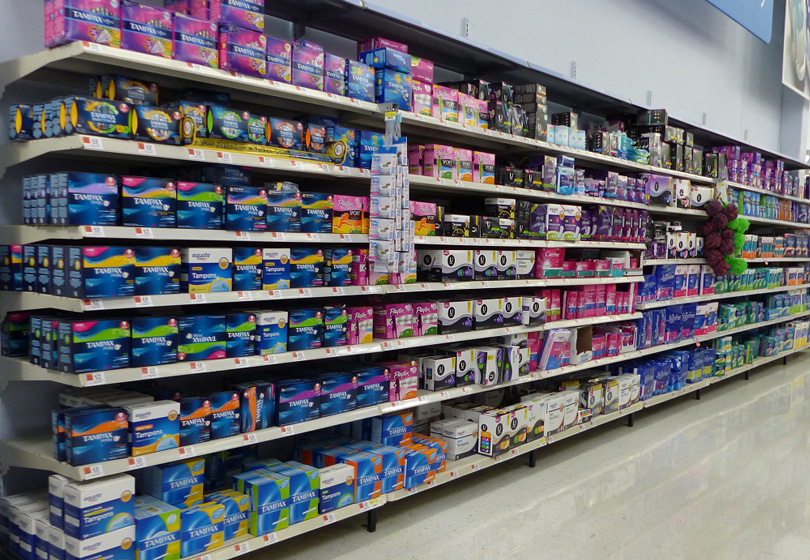Open your television and you might find one or two commercials for feminine hygiene products. Apart from feminine wash, you have products such as special deodorants, cleansers, scented sanitary napkins and panty liners, something called vaginal steaming (and yes, it is exactly what it sounds like), and the traditional douching. All of these products promise to keep your privates smelling and feeling clean throughout the day.
While they can sort of clean to a certain extent, it is not the kind of cleanse you want if you want to keep your intimate parts healthy. Cleanses are actually harming your reproductive health and increasing the risk of yeast and bacterial infection, among other changes you are forcing your body.
I did some research and found that, while the feminine hygiene industry earns around $2.7 in annual revenue, most of its products are unnecessary. In fact, incorrect use or prolonged exposure to these products may lead to some serious reproductive disorders.
The Dangers of Douching
Around 20 to 40 percent of women in the United States douche for hygienic purposes. But almost a hundred years ago, women douched for different purposes. From the 1920s to the 1950s, it was used as a form of birth control. Women would use thin-necked bottles and disinfectants such as Lysol, Coca-Cola (used as a cleaning agent back then), and vinegar as a fluid. Note that these fluids are extremely corrosive back then, but women believed that it could cleanse their vaginas after sex and get rid of the sperm that could get them pregnant.
It wasn’t until 1972 when the birth control pill was approved by the Food and Drug Administration. However, instead of going out of business, companies that made douches rebranded and advertised douche as a way to deodorize, clean, and prevent STIs and STDs. It’s a smart (albeit misleading) move which helped them exist until now despite the various forms of birth control in the market.
According to gynecologist Dr. Adelaide Nardone, modern douching fluids contain iodine, baking soda, and vinegar, ingredients found in modern cleansers which can affect the ecosystem in your vagina (Yes, there is an ecosystem of good and bad bacteria down there). These fluids can alter your pH or acidity levels, which could kill the good bacteria that are preventing pathogens and bad bacteria from causing a bacterial or fungal infection. In addition, the act of pushing a douche into your vagina and squirting water upwards could push the bacteria into your cervix, which would cause even more serious internal problems, including a pelvic infection.
Many women do this because of the misconception that douching is required if they want to be clean. However, the American College of Obstetricians and Gynecologists warn women against douching, though some continue to do so. Some women don’t feel comfortable by the discharge or their regular odor, so they use artificial scents to mask up the scent. This discharge, though, is the vagina at work, removing dead cells, blood, and harmful bacteria, and removing that could trap those inside.
Feminine Wash
Feminine wipes and feminine wash provide the same use as douches, but without the bottle and not as invasive. However, contrary to the advertisements, it’s not as necessary as it appears. Contrary to what it claims, being free of bacteria may imbalance your pH levels and cause vaginosis, an infection where pathogens take over because there are not enough good bacteria to protect the area and can only be cured with antibiotics.
Vaginal Steaming
Vaginal steaming is the act of sitting on a special chair — think of a toilet, but at the bottom of the hole is boiling water usually mixed with herbs and essences — and letting the steam cleanse your vagina. According to the services that offer it, it can provide an energetic release that balances female hormone levels. However, that’s not exactly true, and it’s more of a pseudo-science than an actual treatment.
If you can get past the risk of burning and scalding your private parts, you risk drying the skin outside your vagina, which could lead to chaffing and feeling uncomfortable dryness. The steam is also likely to disrupt your vaginal microbiome and reduce the barrier against infections. It might not reach your uterus, but allowing steam and organic items to enter your vagina could disrupt the ecosystem.
Why Are We Even Doing It?
What’s weird about these feminine hygiene advertisements is that they market their products as a need for all women, when in reality, the vagina is a self-cleaning body part. What douching, feminine wash, and all feminine hygiene products have in common is they all promise to make female genitals smelling clean.
Yes, because a vagina smelling like a sea breeze or a generic flower scent is natural, but God forbid a woman’s genitals smell the natural way it’s supposed to smell.
Gynecologists recommend that you don’t even need to do anything. The vagina is a self-cleaning body part and can naturally clean up unwanted bacteria and substances without the use of feminine hygiene products. They recommend simply cleaning the outer area with soap and water; if something doesn’t appear right, consult with a professional gynecologist.
Many women perceive vaginal discharge as undesirable and unnatural, but in some cases, it’s really a physiological and normal occurrence. In other countries, douching is not a common practice, and yet women can still survive without the products we have. Maybe the fact that women are expected to smell good everywhere might speak volumes about how we treat women. But really, instead of trying to fix the problem ourselves, maybe we should consider leaving our reproductive health to the doctors who can better understand what’s going on down there than all these feminine hygiene fads.
